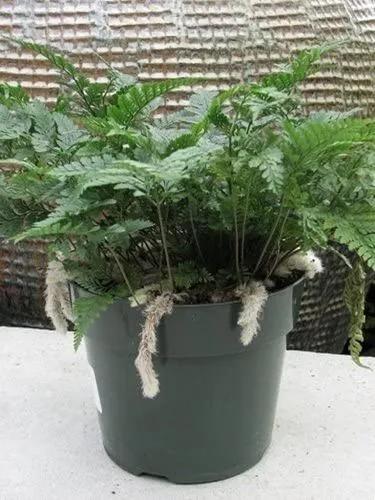Nephrolepis is a genus of about 30 species of ferns. It is the only genus in the family Nephrolepidaceae, placed in the suborder Aspleniineae of the order Polypodiales in the Pteridophyte Phylogeny Group classification of 2016. The genus is commonly referred to as macho ferns or swordferns.
Nephrolepis Obtusiloba Care
Nephrolepis Obtusiloba
Other names: Sword Fern



How to Care for the Plant

Water

Requires consistently moist soil; do not let dry out between waterings.

Pruning

Prune out any brown or yellow fronds.

Fertilizer

Fertilize monthly year-round with a half-strength liquid fertilizer. It's best to only repot when your plant is root-bound, and preferably in the spring. Repot in a rich, high quality soil, such as a potting soil amended with 25% compost.

Sunlight

Ferns require indirect sunlight.

Soil

Ferns prefer potting soil with good drainage and high organic content. A potting mix should have peat moss or sphagnum for moisture retention, sand or gravel for drainage, and sterilized bagged garden loam or potting soil.

Temperature

On the coldest end of the scale, hardy ferns can survive temperatures down to minus 50 degrees Fahrenheit.

Container

Use plastic pots, which don't dry out as quickly as clay pots. The latter are not recommended for many ferns indoors, unless you use the pot in pot method as described above. A clay pot surrounded by moss then the ceramic or plastic pot on the outside is probably ideal.

Popularity

54 people already have this plant 6 people have added this plant to their wishlists
Discover more plants with the list below
Popular articles






